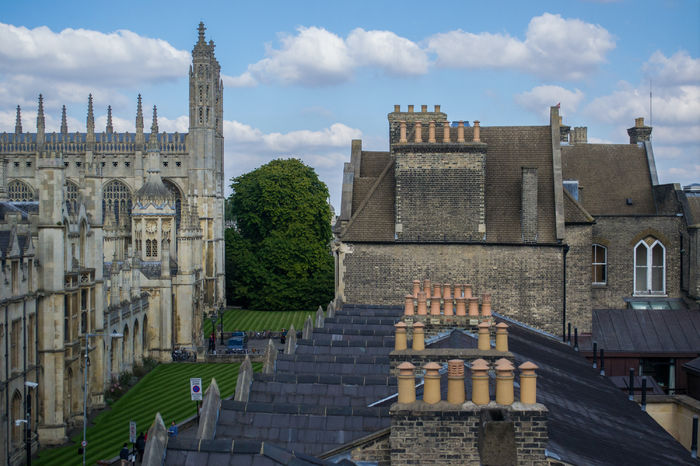University announces Foundation Year for disadvantaged students
Cambridge courses will be accessible and free of charge to up to 50 educationally and socially disadvantaged students with BBB grades from October 2022

The University has launched its new Foundation Year scheme today (13/01), which aims to provide a new route to undergraduate study for educationally and socially disadvantaged students from October 2022.
In a press release to Varsity, the University outlined the one-year course, which aims to prepare students for further study by giving them the opportunity to progress directly onto studying for a degree at Cambridge. The scheme will be open to students whose education has been disrupted by their circumstances, with the criteria ranging from economic circumstances to care-leavers.
All accepted students will receive a free-of-charge full one-year scholarship, funded by the £5 million gift from philanthropists Christina and Peter Dawson. Christina Dawson, in a press release from the University, stated that “the need for this Foundation Year has become ever clearer as the pandemic has exacerbated inequities and disadvantages.”
The programme will build on the University’s previous access efforts, including the use of UCAS Adjustment and using contextual ‘flags’ during the admissions process, to increase the proportion of students at the University from state-schools, low-progression areas or from socio-economic deprivation.
Up to 50 students will make up the programme’s first cohort in October 2022, after applying directly through UCAS by January 2022, attending interviews and completing assessments. Applicants will need to earn 120 UCAS Tariff Points to be eligible for the programme, the equivalent of a BBB offer, as opposed to the usual minimum A*AA offer that the University requires.
The programme is aimed at “students whose education has been disrupted and are therefore unlikely otherwise to be able to make a competitive application to undergraduate study at Cambridge.”
This “disadvantage and disruption” is considered to include students who meet one or more criteria from two of three categories: “Individual characteristics”, including extended absence for health reasons, being a young carer or estranged; “Family characteristics”, including being eligible for Free School Meals or having a combined household income of less than £25,000; “School or College characteristics”, including low attainment or a school that performed poorly in a recent inspection.
The “specially designed multi-disciplinary course” will “focus on deeper learning skills,” with students being taught through supervisions, lectures and seminars. The course will be divided into four “streams,” which students can select papers from: “Working with textual sources”, “Working with material sources”, “Working with languages” and “Working with data”.
A press release from the University added that “it is anticipated that...more subjects could be added, for example STEM subjects.”
Successful applicants will live in college accommodation and “enjoy the full ‘Cambridge experience,’” the press release states.
Thirteen Cambridge colleges will be participating in the scheme: Downing, Fitzwilliam, Girton, Gonville & Caius, Homerton, Lucy Cavendish, Murray Edwards, Newnham, Sidney Sussex, St John’s, St Edmund’s, Queens’ and Wolfson.
Upon completion of the course “to the required standard,” students will be able to progress to one of the following eighteen degree courses: Anglo-Saxon, Norse and Celtic, Archaeology, Asian and Middle Eastern Studies, Classics, Education, English, History, History and Politics, History and Modern Languages, History of Art, Human, Social and Political Sciences, Land Economy, Law, Linguistics, Modern and Medieval Languages, Music, Philosophy, and Theology, Religion and the Philosophy of Religion.
Professor Graham Virgo, Senior Pro-Vice-Chancellor for Education, said in the press release: “The University’s work to explore new ways of widening access and closing the attainment gap caused by inequality is absolutely vital at a time when those the Foundation Year is aimed at – who already face exceptional disadvantage - are likely to have felt the impact of the COVID-19 pandemic disproportionately.
Virgo added that “Cambridge is committed to further diversifying its student body and welcoming all those who have the ability to achieve here, regardless of background.”
 Comment / Cambridge students are too opinionated 21 April 2025
Comment / Cambridge students are too opinionated 21 April 2025 Comment / Does the AI revolution render coursework obsolete?23 April 2025
Comment / Does the AI revolution render coursework obsolete?23 April 2025 Comment / Cambridge’s tourism risks commodifying students18 April 2025
Comment / Cambridge’s tourism risks commodifying students18 April 2025 News / News in brief: campaigning and drinking20 April 2025
News / News in brief: campaigning and drinking20 April 2025 Interviews / Meet the Chaplain who’s working to make Cambridge a university of sanctuary for refugees20 April 2025
Interviews / Meet the Chaplain who’s working to make Cambridge a university of sanctuary for refugees20 April 2025







